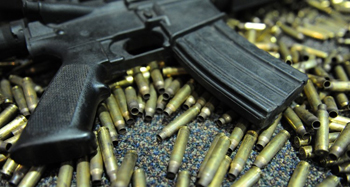May 24: Many people believe that violent acts such as mass shootings may be byproduct of mental illness. However, researchers have found that it can also be due to intense emotional commitment to certain beliefs.

They define the term as a belief that is shared by others and often relished, amplified and defended by the accused.
The individual has an intense emotional commitment to the belief and may act violently as a result of that belief.
Although the individual may suffer from other forms of mental illness, the belief and the actions associated with it are not the result of insanity, the researchers noted.
The study, published in The Journal of the American Academy of Psychiatry and the Law, was conducted on Anders Breivik, a Norwegian terrorist, who killed 77 people on July 22, 2011, in a car bombing in Oslo and a mass shooting at a youth camp on the island of Utoya in Norway.
Claiming to be a "Knights Templar" and a "savior of Christianity", Breivik stated that the purpose of the attacks was to save Europe from multiculturalism.
"When these types of tragedies occur, we question the reason behind them," said lead study author Tahir Rahman from University of Missouri-Columbia in the US.
"Our study of the Breivik case was meant to explain how extreme beliefs can be mistaken for psychosis and to suggest a new legal term that clearly defines this behaviour," Rahman added.
Two teams of court-appointed forensic psychiatrists later examined Breivik. The first psychiatric team diagnosed him with paranoid schizophrenia.
However, after widespread criticism, a second team concluded that Breivik was not psychotic and diagnosed him with narcissistic personality disorder. Breivik was sentenced to 21 years in prison.
"Breivik believed that killing innocent people was justifiable, which seems irrational and psychotic," Rahman said.
"However, some people without psychotic mental illness feel so strongly about their beliefs that they take extreme actions. Our suggested term for criminally violent behaviour when psychosis can be ruled out is 'extreme overvalued belief'," Rahman noted.
"We already warn our youth about the dangers of alcohol, drugs, teen pregnancy and smoking. We need to add the risk of developing extreme overvalued beliefs to that list as we work toward reducing the violence often associated with them," Rahmen said.





Comments
Add new comment